As a bodybuilder striving for peak performance, you likely prioritize your training regimen and protein intake. However, focusing solely on protein while overlooking essential vitamins and minerals can leave gaps in your nutrition. These micronutrients play a crucial role in muscle growth, recovery, and overall performance.
In this blog, we’ll explore why multivitamin supplements are essential for building muscle and how they could be the missing link in your fitness strategy.
Nutritional Demands of Bodybuilding
Bodybuilding creates unique nutritional demands that exceed those of the average person. When you train intensely, your body requires additional micronutrients to support increased metabolic activity, muscle repair, and hormone production. Even with a well-planned diet, the increased caloric expenditure and metabolic demands of resistance training can create nutritional gaps that need to be addressed.
The nutritional requirements for bodybuilders vary based on several factors. Your age significantly impacts your vitamin and mineral needs. Younger athletes might require more nutrients to support growth and development, while older bodybuilders often face declining nutrient absorption and may need higher levels of certain vitamins like B12 and D.
The type of physical activity you engage in also dictates your micronutrient requirements. Hypertrophy training with high volume creates different nutritional demands compared to strength-focused training with heavier weights but lower repetitions. High-intensity workouts deplete energy reserves more quickly and increase oxidative stress, requiring additional antioxidants to support recovery.
Additionally, your diet plays a crucial role in determining whether supplementation is necessary. Those following restrictive eating patterns, whether for cutting phases or due to dietary preferences, face higher risks of deficiencies. For example, bodybuilders on low-carb diets might miss out on B vitamins typically found in whole grains, while those limiting fat intake could be deficient in fat-soluble vitamins like A, D, and E.
The Benefits
The benefits of specialized multivitamin formulation for bodybuilders extend beyond simply preventing deficiencies. When micronutrient levels are optimized, one can experience:
-
Enhanced recovery through improved nutrient utilization and reduced inflammation
-
Optimized hormone production, particularly testosterone and growth hormone
-
Increased energy levels during training sessions
-
Improved immune function, reducing training interruptions due to illness
-
Better sleep quality, which is when most muscle repair occurs
Key Vitamins and Minerals for Muscle Growth and Recovery
While protein isn't technically a vitamin or mineral, it plays a fundamental role in muscle building. However, consuming protein alone isn’t enough—your body needs essential vitamins and minerals to properly metabolize and utilize it. For example, zinc and other key minerals act as crucial co-factors in protein metabolism and muscle repair [NIH]. Without these supporting nutrients, your body may struggle to efficiently synthesize muscle, recover from workouts, or maintain optimal performance.
Let’s take a closer look at these essential nutrients and understand how they contribute to your fitness journey.
B Complex Vitamins
The B complex vitamins serve as crucial catalysts in energy production pathways [NIH]. Here’s a breakdown of each vitamin B.
-
Thiamine (B1) is essential for converting carbohydrates into energy during workouts.
-
Riboflavin (B2) and niacin (B3) are vital for energy production in working muscles.
-
Vitamin B5 as calcium pantothenate plays a central role in energy metabolism and the production of adrenal hormones that help manage training stress.
-
Vitamin B6 as pyridoxine hydrochloride plays a vital role in protein metabolism and helps with the creation of red blood cells that transport oxygen to working muscles.
-
Perhaps most important for bodybuilders is vitamin B12 as methylcobalamin, which supports nerve function and DNA synthesis. B12 deficiency can lead to fatigue and weakness that severely impacts training performance.
-
Folate/Folic acid (B9) works alongside B12 and contributes to cell division and repair—critical processes during muscle recovery and growth. Biotin (B7) supports macronutrient metabolism and may help maintain healthy blood sugar levels during training.
Together, these B vitamins ensure that your body efficiently converts food into energy and supports the metabolic demands of intense training sessions.
Vitamin D
Multivitamin provides vitamin D3 as cholecalciferol from lichen, which has emerged as a star player in the bodybuilding supplement arena. This powerful hormone-like vitamin influences over 1,000 bodily processes, many directly relevant to muscle performance. Vitamin D deficiency is associated with decreased muscle strength and impaired recovery. (NIH) Correcting this deficiency can lead to measurable improvements in power output and reduced injury risk.
Additionally, vitamin D plays a crucial role in testosterone production, the primary anabolic hormone responsible for muscle growth in both men and women. Studies have demonstrated that vitamin D supplementation can increase testosterone levels, potentially leading to greater gains in muscle mass over time. (NIH)
Despite its importance, vitamin D deficiency remains surprisingly common among bodybuilders, even those living in sunny climates. This is due to factors like indoor training, sunscreen use, and the body's decreased ability to synthesize vitamin D from sunlight as we age.
Essential Minerals
Multivitamin also provides several key minerals that directly influence muscle performance and recovery:
-
Zinc as zinc citrate supports protein synthesis, hormone production (including testosterone), and immune function. Intense training increases zinc losses through sweat, making supplementation particularly important for bodybuilders.
-
Copper as cupric citrate works synergistically with zinc and is necessary for energy production and connective tissue formation, which is crucial for joint health during heavy lifting.
-
Selenium as sodium selenite acts as a powerful antioxidant that helps protect muscles from oxidative damage during intense training. It also supports thyroid function, which regulates your metabolism.
-
Chromium as chromium picolinate helps regulate blood sugar and may improve insulin sensitivity, which is important for nutrient partitioning in bodybuilders.
-
Iodine from kelp supports thyroid function, which regulates metabolism and energy production, critical factors for bodybuilders looking to optimize body composition.
-
Iron as electrolytic iron carries oxygen to muscles during exercise and supports energy production. While multivitamin contains iron, it's included at levels that help prevent deficiency without risking excess.
-
Manganese as manganese oxide supports antioxidant systems and is involved in the metabolism of carbohydrates, amino acids, and cholesterol.
-
Boron as boric acid may influence steroid hormone metabolism, potentially supporting testosterone levels in bodybuilders.
Additional Performance Enhancers
Multivitamin formula goes beyond basic vitamins and minerals to include specialized components:
-
Vitamin K2 as menaquinone works synergistically with vitamin D to support bone health, essential for bodybuilders placing stress on their skeletal system.
-
Vitamin A as retinyl acetate supports immune function and cellular growth, important during intense training phases.
-
Vitamin C as L-ascorbic acid is a powerful antioxidant that supports collagen production for joint health and immune function.
-
Vitamin E as d-alpha tocopherol provides antioxidant protection against the increased oxidative stress from intense workouts.
Picking The Right Supplement
When choosing a supplement, it’s essential to look for one that provides complete daily nutrition while maintaining high purity and quality. A good multivitamin should offer 100% of the Recommended Daily Allowance (RDA) of essential vitamins and minerals to bridge nutritional gaps.
It should also include gender-specific nutrients like iron and folic acid for women’s health or zinc and B-complex vitamins for men’s energy and metabolism. Additionally, digestive enzymes such as protease, amylase, and lactase help improve nutrient absorption and support gut health. Opting for plant-based, non-GMO supplements free from fillers and additives ensures a cleaner and safer choice.
Wellbeing Nutrition’s Multi+Omega for Women, Multi+Omega for Men, and Multi+Omega 50+ are high-quality, scientifically formulated multivitamins designed to meet daily nutritional needs. These supplements feature delayed-release capsules for enhanced bioavailability, allowing better absorption of nutrients. They are also packed with vegan DHA for brain and heart health, powerful antioxidants for immunity, and superfoods for overall wellness. Made with clean, plant-based ingredients, they provide a safe and effective way to support your health without artificial additives or unnecessary fillers.
Conclusion
Building muscle isn’t just about loading up on protein—your body needs a complete spectrum of nutrients to perform at its best. Essential vitamins and minerals play a key role in muscle recovery, energy production, and overall performance. Without them, even the best training and diet plan can fall short. To truly maximize your gains, focus on a well-rounded diet, smart supplementation, and healthy lifestyle habits like proper hydration, rest, and recovery. A high-quality multivitamin can help bridge nutritional gaps, ensuring your body has everything it needs to support strength, endurance, and muscle development.







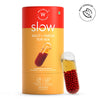








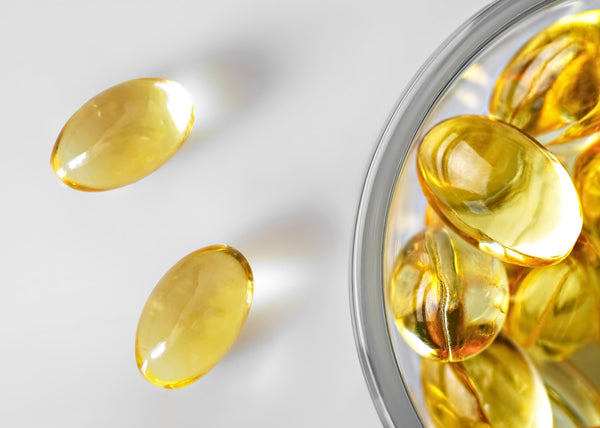

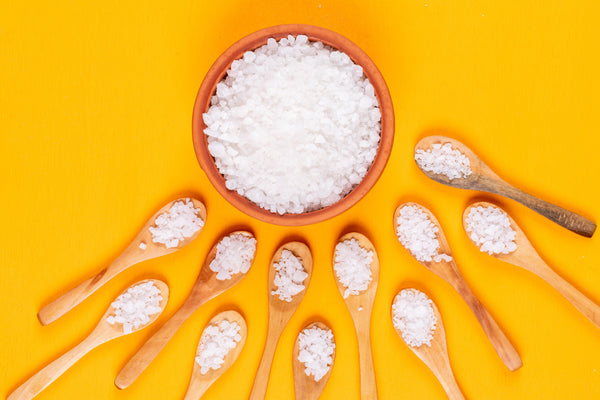


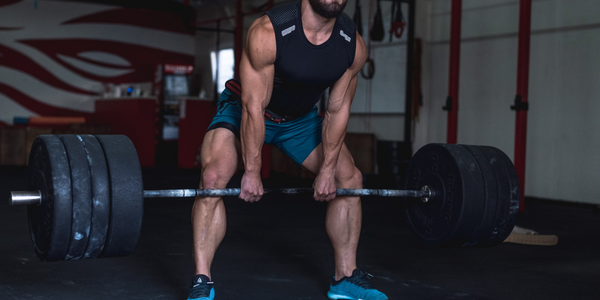
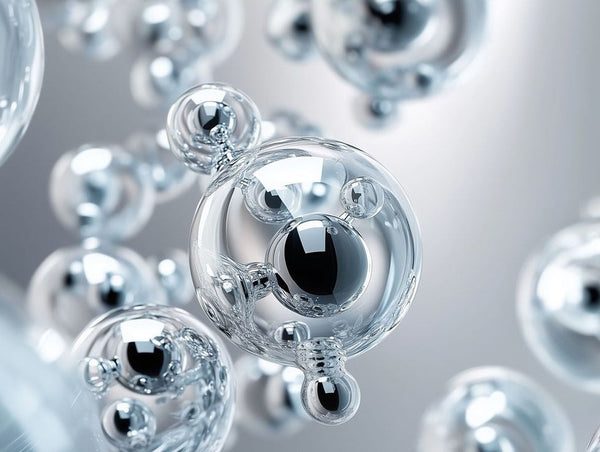







 DOWNLOAD NOW
DOWNLOAD NOW
